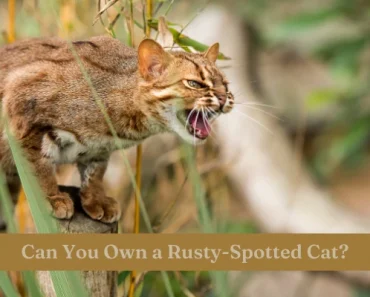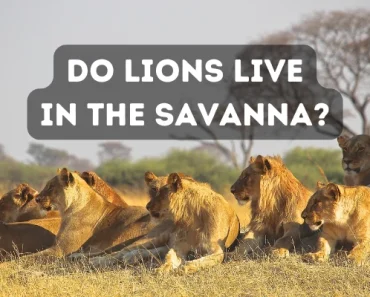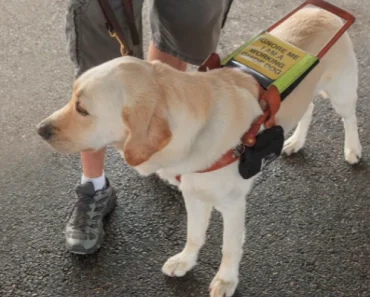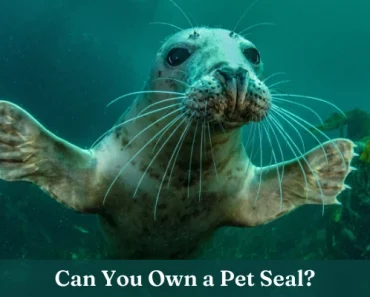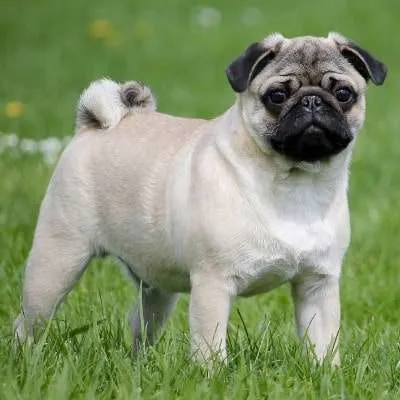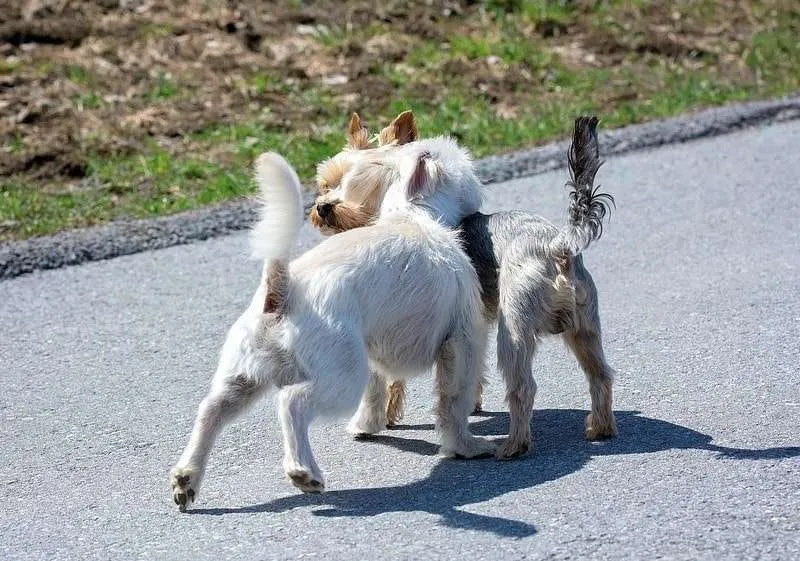
Have you ever been around another person with your dog having a doggy date and one of the dogs sniffs the other dog, specifically in the anal region?
Then you turn toward the other person and they look at you and say…”Well, that is just their way of saying hello to each other”.
I’ve been in a situation like this many times. The conversation with another person is always the same. Their understanding is that dogs sniff other dogs’ rear ends as a way of saying hello.
But is this true? Is your dog really saying hello to the other dog by sniffing its bum? Why do dogs sniff other dogs?
If you are like me and you have thought about this question or had a similar conversation with someone about dogs before, then you may just accept the answer they give you as the truth because you’ve heard that same answer over and over again.
But is it true? Do dogs sniff other dogs’ butts to say hello?
If you think dogs sniff other dogs to say hello, that really isn’t the case at all. To get the real answer, continue reading!
Why does my dog sniff other dogs?
When a dog sniffs another dog, specifically in the anal area, the dog is gathering information. A dog will sniff the anal region of another dog because anal sacs contain fluid that can tell a dog certain information about the other dog.
Things a dog can tell by sniffing another dog’s anal sacs are gender, reproductive status, and general status – among others.
All animals and human have their own unique scent. We as humans don’t have the capability to smell all the odors in the air or odors coming from other people or animals…well unless they haven’t taken a bath in like a month. But, you get what I’m saying.
Your canine has a sense of smell that is 10,000 to 100,000 times better than your nose.
Dogs have millions of tiny little capillaries in their noses that give them such a great sense of smell allowing them to detect odors at extremely low concentrations Their olfactory lobe is about 40% larger in dogs compared to that of humans.
If you’ve ever wondered why your dog’s nose is moist, this is why. A dog’s nose tip is moist so that it can catch molecules in the air from an odor, allowing receptors in the dog’s nose to better process these odors.
Think of your dog’s nose as your eyes. We use our eyes as the main sense for understanding our environment. Dogs don’t have great eyesight, so they use their nose to better understand their environment.
Humans have around 5 million olfactory receptors in their noses compared to dogs with around 220 million. To put it in plain English, dogs can smell hundreds of odors in the air that we can’t.
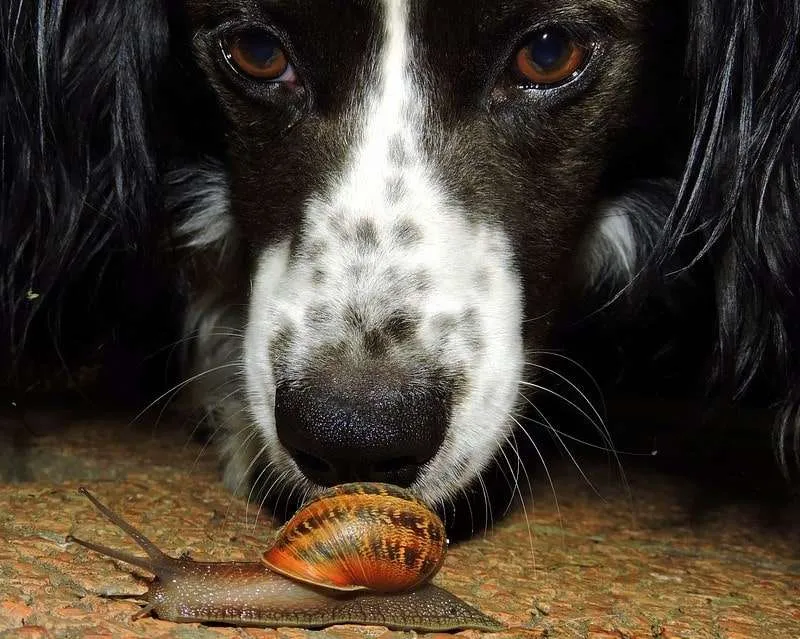
If you take your dog to the park or on a trail, you will notice that your dog sniffs a lot. I take my 2 dogs walking on a trail all the time. It is always the same.
We have to stop every 3 seconds so they can sniff the ground, the tree, the concrete, the gravel, and anything and everything else they come into contact with.
This may be annoying at times, but it is just a dog’s way of gathering information about its environment. So give your pups the freedom to roam when you are on a walk (leash in hand, not roam literally) and let those little sniffers have at it so they can better understand the world around them.
If you are interested in tech stuff, ACS Chemistry put out an article about humans attempting to mimic a dog’s nose. You can read it here.
What can I do to stop my dog from sniffing other dogs’ butts?
There’s not much you can do except to keep your dogs away from other dogs. Dogs sniffing other dogs’ butts may be disgusting to you, but this is a natural thing for a dog and shouldn’t be discouraged because how else would the dog gather the information it needs about other dogs and their environment.
If it is a strange dog or seemingly unhealthy dog that your dog is trying to sniff, then that is a different story. But if it a friend’s dog or a dog you are familiar with, then the dogs sniffing each other shouldn’t be a problem.
I take my dogs to the park and trails all the time and they always sniff or get sniffed. I don’t mind them sniffing butts or getting their butt sniffed, but I think I would be more hesitant if the strange dog appeared unhealthy or sick.
On the other side of that, don’t let your dog be too overbearing either. A dog can process the odor of the other dog within a few seconds of sniffing.
So, let your dog sniff for a few seconds and then they should have all the information they need.
Why do dogs sniff humans?
Dogs sniff humans to gather information similar to the way they gather information about other dogs. We, as humans, are starting to utilize our canine companion’s nose to our advantage.
We all know that police have been using canines for years to sniff out illegal contraband at traffic stops, border crossings, airports, etc. But humans have been trying to take it a step further.
You may have heard people talking about how dogs can sniff out certain cancer. There have been tons of research and studies that show dogs do have the ability to sniff urine to detect cancer.
One article I was reading shows a 97% success rate for the dogs being able to detect certain cancer. You can check it out here.
Final Thoughts
I hope I was able to bring some insight into why your dog sniffs other dogs’ butts. I know it can be gross and disgusting to us humans. But for a dog, it is a normal and natural action.
They won’t understand why you don’t want them to sniff other dog butts, so just let them do their natural thing.
We may one day get to a point where we are utilizing dogs and their noses to sniff out so much more. Humans are already doing studies for cancer research. It is only a matter of time until humans think of another useful way to utilize a dog’s nose.
But there may also come a time when we don’t need the dog’s nose to sniff out stuff because we will have created our own artificial dog nose.
If you enjoyed this article, give some of my other dog articles a read by clicking here.
